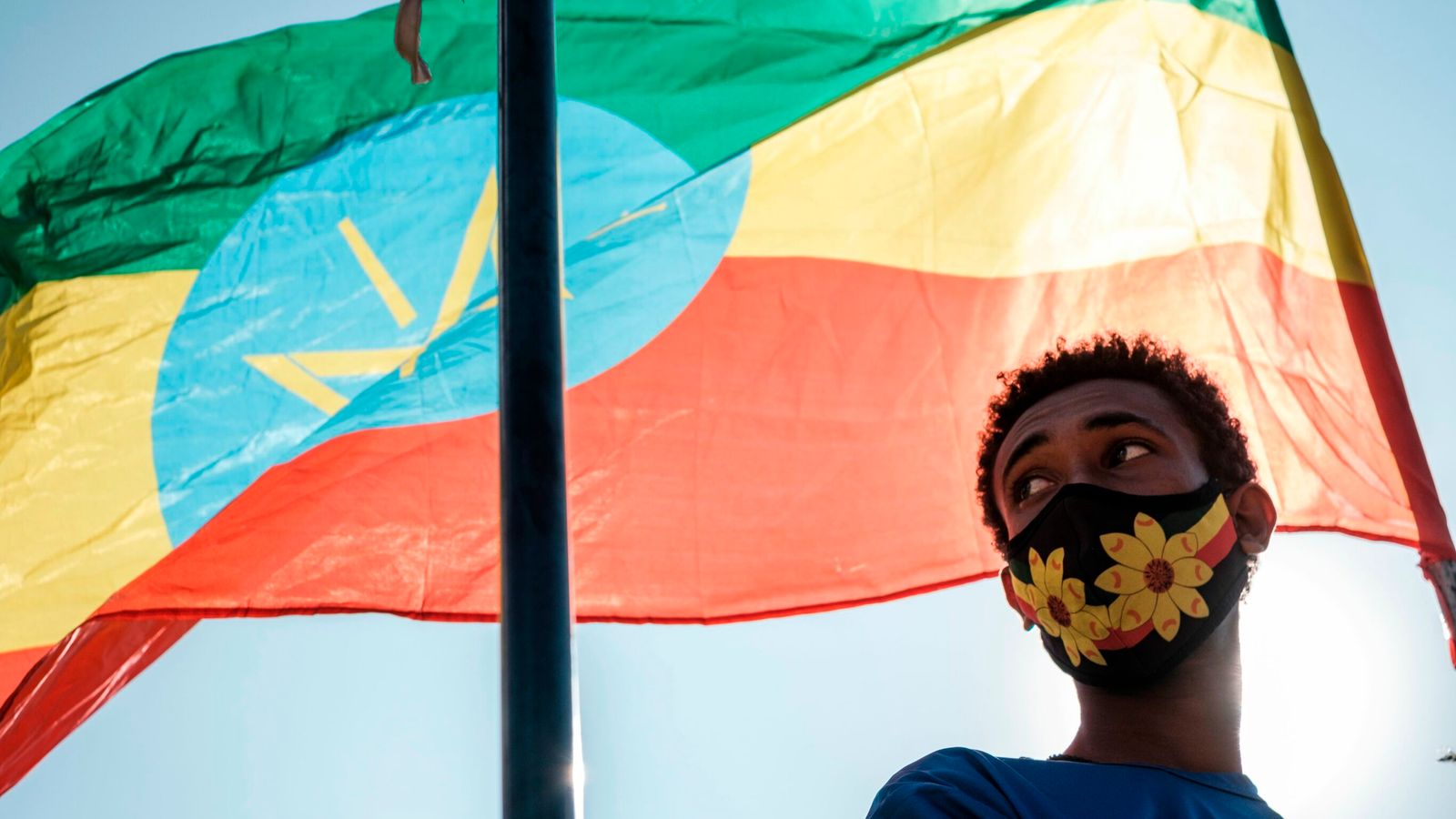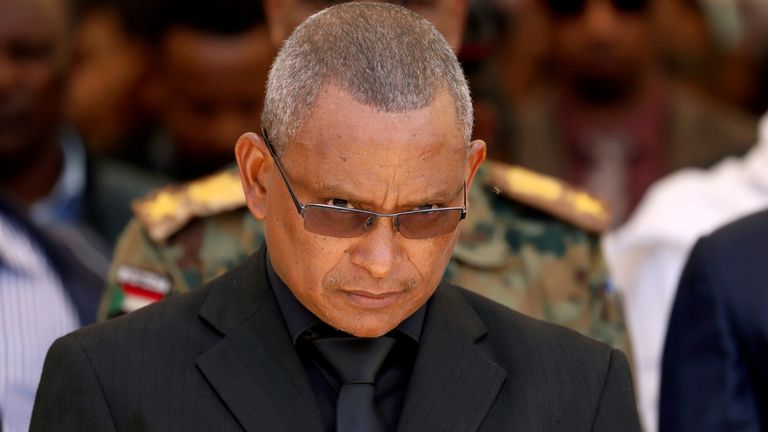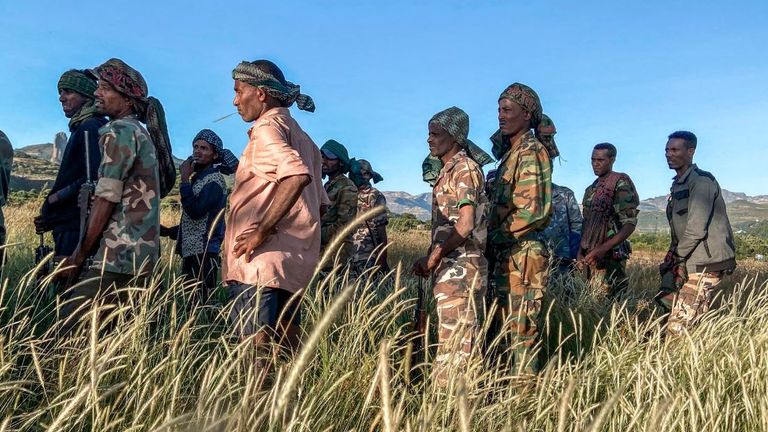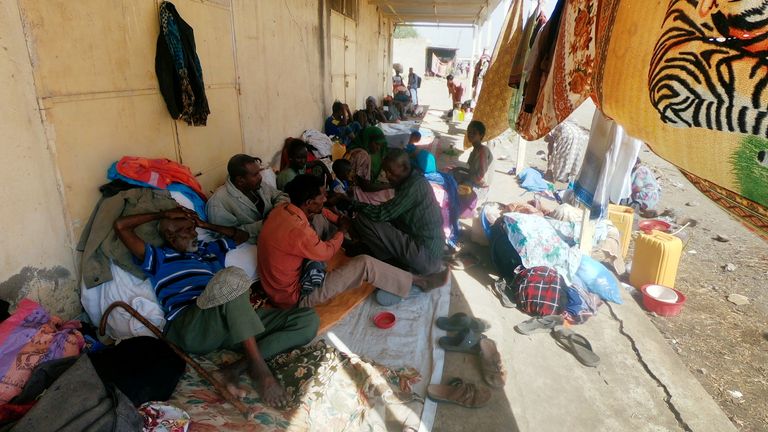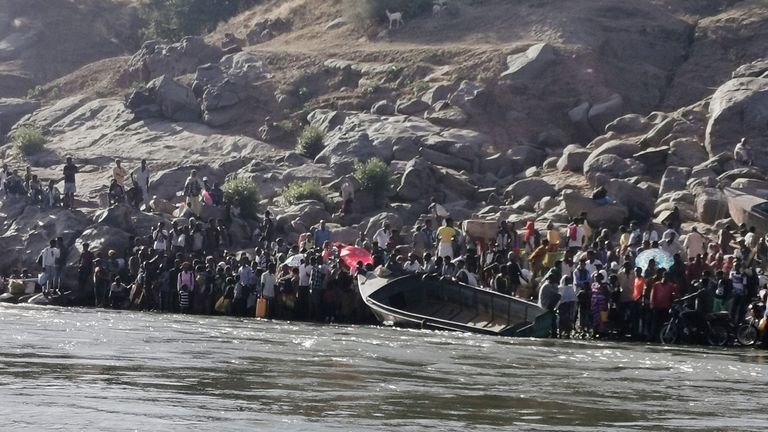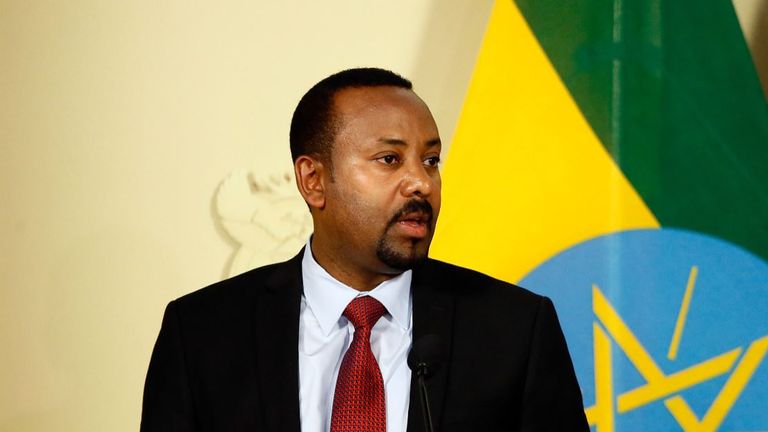Tigray’s leader has admitted it fired missiles at the capital of neighbouring Eritrea, in another escalation of the fighting in Ethiopia.
Earlier, at least three rockets appeared to have been aimed the airport in the Eritrean capital Asmara, hours after the Tigray regional government warned it might attack.
The attacks on an international target represent another dangerous escalation of the conflict in one of Africa’s most populous nations, after fighting broke out on 4 November.
On Saturday, two other rockets were reported to have hit Ethiopia’s Amhara state, after earlier allegations of attacks on reportedly ethnic Amhara people in Tigray.
In the tweet, Ethiopian Prime Minister Abiy Ahmed responded by saying those committing crimes “against humanity and peace will be held accountable”.
Mr Abiy added: “We will take any legitimate military target and we will fire.”
Fighting erupted after the Ethiopian federal government accused the government of Tigray – Ethiopia’s northern-most state – of attacking a federal troop base on its territory.
The regional president of Tigray, meanwhile, said Eritrea has sent thousands of troops and tanks to his region in support of an Ethiopian government offensive.
Tigray regional president Debretsion Gebremichael said: “We will fight them on all fronts with whatever means we have.”
“Our country is attacking us with a foreign country, Eritrea. Treason!”
He added that around 16 Eritrean divisions are fighting in what he called a “full-scale war.”
Government officials in Eritrea and the Ethiopian capital Addis Ababa were asked for comment by Reuters but could not immediately be reached.
Mr Abiy tweeted on Sunday that Ethiopia was more than capable of achieving its objectives in Tigray “by itself”, but did not directly address Mr Debretsion’s claims.
Last week, Eritrean Foreign Minister Osman Saleh Mohammed denied his country had sent forces into Ethiopia, telling Reuters: “We are not part of the conflict.”
The conflict has the potential to destabilise a region that has experienced regular unrest in the last few decades.
As fears grew of a security vacuum in the country, Gunmen in the west of Ethiopia killed at least 34 people in an attack on a bus on Saturday night, the national human rights body said on Sunday.
It said there were reports of “similar” attacks and of people fleeing violence amid worries the Tigray fighting could encourage other ethnic groups to exploit the chaos to push for more autonomy, while the redeployment of federal forces could leave other regions exposed.
Hundreds have been killed in Tigray in clashes between national government troops and forces loyal to the regional government.
Amhara regional state forces have been fighting alongside federal government troops.
Around 20,000 Ethiopian refugees have crossed into Sudan away from the fighting, according to the UN refugee agency.
As violence has intensified in recent days, scores of civilians have been stabbed and hacked to death in the northern Tigray region, according to Amnesty International.
While Amnesty has not confirmed who was responsible for the killings, witnesses have said that forces loyal to the Tigray People’s Liberation Front (TPLF), the ruling party in Tigray, were behind the killings after suffering defeat from the federal Ethiopian defence forces.
It has been reported that most of the victims were ethnic Amharas.
Ethiopia’s human rights commission says it will be investigating the killings, which it said had a “reasonable risk” of being ethnically targeted.
The United Nations has warned of possible war crimes.
Communication and transport links have recently been cut in the Tigray region, making verification of allegations difficult.
Mr Abiy, who last year won the Nobel Peace Prize for his sweeping political reforms, has called for rebel forces to surrender, and rejected calls for talks and de-escalation.
Months of unrest have left the country on the brink of civil war, with the risk of conflict spreading to other parts of the country and destabilising the wider Horn of Africa region.
Ethiopia is the second most populous nation in Africa, with around 110 million inhabitants.
